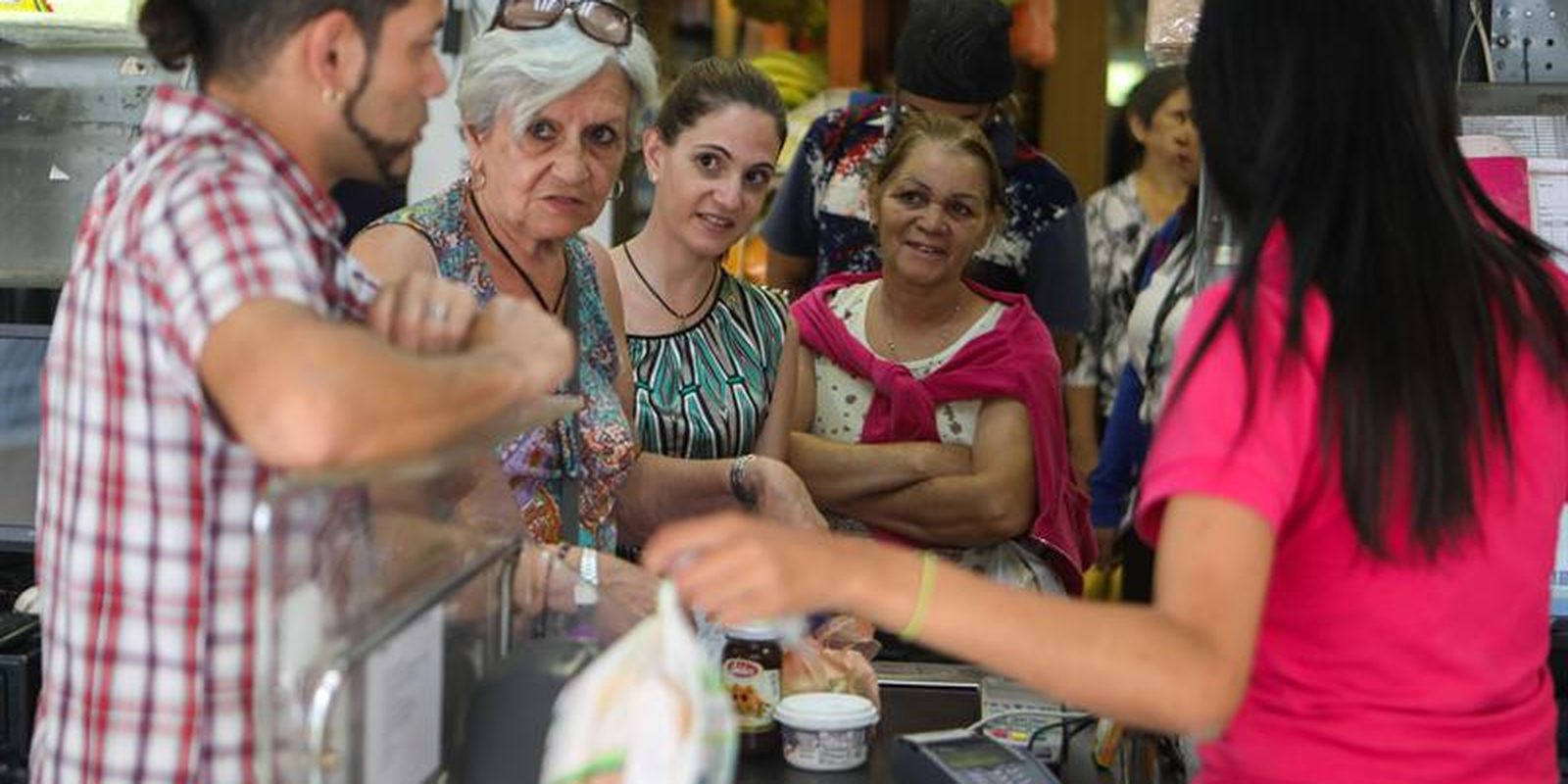In Brazil, women are more concerned about sustainable consumption than men. This is what a survey released by the National Confederation of Commerce of Goods, Services and Tourism (CNC) shows this Friday (2). The study sought to understand how environmental, social and economic aspects influence consumer behavior.
Entitled Conscious Consumption Survey – Consumer Vision 2024, the initiative involved an online survey with 1,019 people. Data collection was carried out at the end of October last year in 320 cities, from all regions of the country. Respondents answered a questionnaire on the topic. The results were disaggregated by gender, social class, age group, education level and geographic location.
Among women, 36% said they stop buying products from vendors or manufacturers with practices that are harmful to the environment, 39% said they reject companies involved in scandals involving disrespect towards employees, and 38% reject brands involved in fraud or corruption. Among men, lower percentages were recorded in all three topics: 33%, 38% and 36%, respectively.
Women are also more likely to conduct extensive price research before making a purchase: 67% of women said they have this habit. Among men, the figure was 61%.
Participants were asked what their main concerns were regarding the adoption of conscious consumption. The order of the most marked answers was similar between women and men, with slight differences in percentages.
The list was headed by reducing pollution and using natural resources responsibly, cited by 61% and 58% of female consumers and 60% and 57% of male consumers, respectively. In third place were the brands’ labor issues, mentioned by 55% of women and 56% of men. In addition, 54% of both genders mentioned reducing the impact on flora and fauna.
The interviewees also answered which attitudes they most adopted in line with conscious consumption. The most cited answers were the purchase of refillable products to reuse packaging, the purchase of products that can be reused, the rational use of natural resources such as electricity and water, the preference for products made from recyclable materials, the refusal to buy from companies with scandals of disrespect towards employees and the separation of recyclable waste at home.
The survey results also indicate that socio-environmental certifications – such as Organic Products Brazil, FSC Seal, ISOs, NBRs, Procel Seal, and Child-Friendly Company Seal – are important to most respondents. They were considered relevant by 58%, and extremely relevant by 21%.
On the other hand, around 70% of consumers surveyed did not consider that buying pirated or counterfeit products is a habit that harms the economy. They also believe that the practice is related to low awareness and education on the subject.
According to the research report released by CNC, consumers have shown growing interest in sustainability, which requires the creation of an agenda for business decision-making. However, there are still obstacles to sustainability being adopted more widely in consumer practices. “In Brazil, 51% of consumers consider sustainable options to be too expensive, and in second place, for 46%, there is difficulty with the limited availability of sustainable products,” says the report.
Social and regional segmentation
Among the data segmented by social class, it is observed that consumers with an average monthly household income range between R$900.60 and R$1,965.87 are the most concerned about researching prices. This practice is claimed by 67% of people in this group. For the other income ranges, the percentage is lower, varying between 63% and 65%.
At the same time, impulse buying is more common among lower-income populations. In income brackets C, D and E, which go up to the monthly household average of 1,965.87, this behavior is reported by 8% of consumers. In income bracket C+, this percentage is 6% and in income brackets A and B, 5%.
Around 29% of those interviewed said they were neither very frugal nor very spendthrift. When segmented by social class, this figure varied between 25% and 31%.
When looking at the geographic region, it is clear that consumers in the Northeast are the most concerned about doing research before making a purchase. This habit is shared by 68%. On the other hand, the population with the highest percentage of people who admit to buying on impulse is in the South: this behavior is reported by 9% of consumers in the region.
Retail specific data
The research, the full version of which is available at CNC electronic portalalso presented specific data involving some retail segments. There were analyses for the clothing and accessories trade; electronics; cleaning products; food and beverages; personal hygiene and beauty; leisure and tourism; and educational institutions.
When it comes to food and beverages, for example, 25% said they preferred community-produced products, 21% preferred recyclable or biodegradable packaging, and 17% preferred organic products. When it comes to hygiene and beauty products, 26% said they preferred products with animal welfare certification, which attests that no animals were used in testing. When choosing cleaning products, 47% mentioned looking for refillable packaging.
For 55% of those interviewed, sustainable practices are relevant when choosing a tourist destination. On the other hand, 51% said they are not willing to pay surcharges on airfare to offset greenhouse gas emissions, while 38% would be willing to pay if they received more information about the measures adopted. The other 11% said they already usually pay extra fees aimed at aviation sustainability.
















